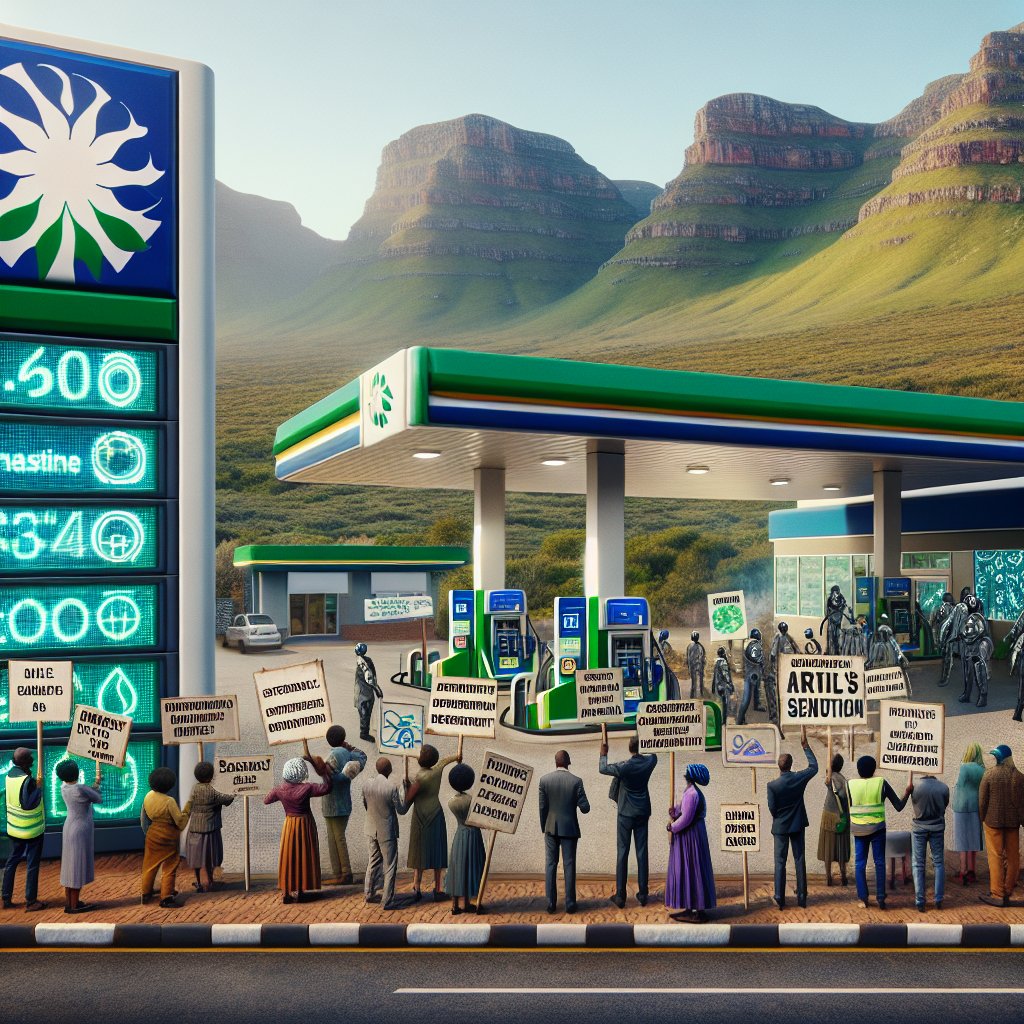Image created by AI
TotalEnergies Faces South African Backlash Over "Misleading" Sustainable Development Claims
TotalEnergies, a major player in the South African petrol station market, has come under scrutiny following a recent ruling by the South African Advertising Regulatory Board (ARB). The ARB has censured the company over what they've deemed to be "misleading" claims regarding its commitment to sustainable development and environmental protection, particularly in relation to a promotion involving South African National Parks.
The issue was brought to the forefront by environmental advocacy group Fossil Free SA, which argued that the French oil giant was effectively 'lying to the public' about the true nature of its operations. The group's complaint centered around a message propagated by TotalEnergies that emphasized their dedication to sustainability and safeguarding the environment, positioning it as a brand in harmony with ecological values.
Responding to these allegations, TotalEnergies' defense was twofold. First, the company contended that the promoted material constituted corporate communication rather than advertisement, and therefore should not fall under the ARB's lens. Secondly, TotalEnergies pointed out to its renewable energy initiatives and environmental impact assessments as evidence of its commitment to the touted principles. However, the company reportedly did not offer additional comment when approached through email.
The ARB's ruling is significant in that it draws TotalEnergies into a growing pool of corporations worldwide that have faced regulatory pushback over so-called greenwashing — the practice of making an unsubstantiated or misleading claim about the environmental benefits of a company's product, service, or brand. The ARB was unequivocal in its judgment that while Total’s efforts towards sustainable development are noted, they do not overshadow the inherent conflict present in the continued exploitation of fossil fuels — an activity at the company's core.
Total's approach to advertising and the framing of its commitments was found to be in violation of the advertising code, especially in the context of the national park system, where environmental stewardship is a central concern.
The increased scrutiny on greenwashing is not isolated to South Africa. The United Kingdom, for instance, has seen active oversight against such misleading claims targeting sectors like aviation, banking, and automotive industries. Similarly, the European Union has been methodically enhancing its vigilance in this space. Notably, TotalEnergies has faced accusations before, with Greenpeace challenging the oil major's plans and ability to achieve net zero by 2050 in France.
The controversy surrounding TotalEnergies in South Africa is part of a broader initiative led by Fossil Free SA, which advocates for the ban of fossil fuel company advertisements in the country, mirroring movements seen in Europe. According to Lazola Kati, a manager involved with the initiative, the issue at hand is authenticity and accountability, asserting that claiming to do one thing while doing another impedes the progress towards a just transition to sustainable energy sources.
The ARB's decision underscores the critical need for not only corporate but social and environmental integrity, challenging industry giants to align their communications with their actions as the world grapples with the urgency of climate change and the necessity for a sustainable future.










